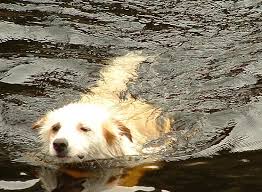Canine hydrotherapy improves the mobility of Labradors suffering from elbow dysplasia. Not only this, it also positively affects the strides of healthy dogs, showing great potential as both a therapeutic tool and an effective way to keep your dog fit.
Mobility is a huge issue for dogs suffering from forelimb lameness, affecting their ability to live a normal happy, doggy life. The most common cause of forelimb lameness is elbow dysplasia, a genetic disorder that causes abnormal bone growth in the dog’s elbow. Some breeds of dog, Labradors and German Shepherds for example, are particularly susceptible to this condition.
Researchers at Hartpury University Centre, UK, Tate Preston and Dr Alison Wills, have discovered that hydrotherapy helps with movement in Labradors with elbow dysplasia. Dr Wills explains: “Dogs with elbow dysplasia displayed an increased range of motion, stride frequency and stride length — measures of mobility in our study — after the hydrotherapy.”
The benefits of hydrotherapy also extended to the healthy control group. “Interestingly, the healthy controls also showed significantly better stride characteristics,” says Dr Wills. “From the findings of this study, it does appear that swimming is good for dogs.”
So should everyone take their dog swimming? Dr Wills maintains a cautious approach to her exciting results: “It is hard to generalise the findings to the entire canine population due to the small sample size. Dogs also come in all shapes and sizes so what works for one may not for another. Even so, most dogs still find swimming fun!”
The team measured dog strides by marking parts of the dogs’ limbs and measuring where the markers move, as Dr Wills explains: “We attached reflective markers to the dogs’ legs and then a camera tracked the movement of the markers. We then analysed the information to see how the movement of the dogs at walk differed before and after swimming.”
The study involved a small number of dogs – something that the group wishes to expand. Dr Will explains: “In this study only Labradors were examined, but as other breeds are predisposed to developing elbow dysplasia, particularly German Shepherds, it would be interesting to investigate how hydrotherapy affects the movement of different types of dogs.”


